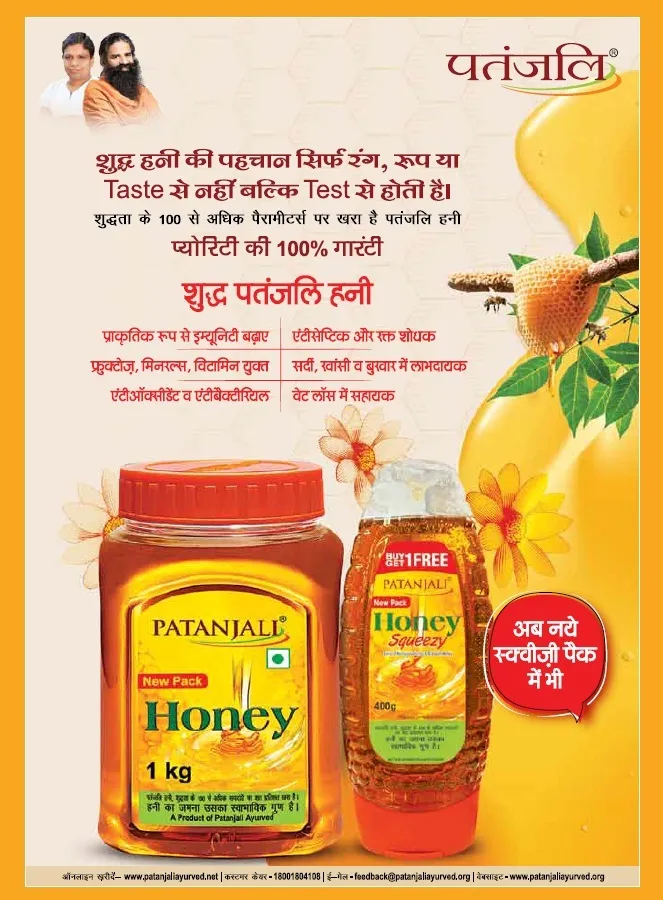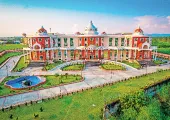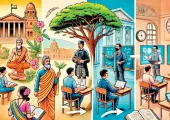Antibiotic Life savers or killers?
On

'Bhai Rakesh 'Bharat', Co-Editor and
Chief Central Incharge Bharat Swabhiman
|
According to a recent report by The Economist, in this first wave of Corona, Indians took 216 million additional doses of antibiotics, which is the highest in the world. In view of the disadvantages of antibiotics, the National Medical Commission has sought an action plan from all medical colleges to prevent its excessive use.
The major problem facing mankind is AMR i.e. Antimicrobial Resistance. When the medicines made for them stop working against infection caused by micro organic bacteria, virus, parasite or fungus, the condition of AMR arises.
Now experts are openly saying that you must ask your doctor whether I really need antibiotics. Even if patients started asking this, doctors would not be under pressure to prescribe unnecessary antibiotics. This attitude has become in India. If the doctor gives antibiotics, the patient assumes that they will not affect him.
A large number of antibiotics are also used in agriculture. Such antibiotic does not work in Job 4 but there is a need to make farmers aware about the spraying of antibiotics in vegetables and fruits because this cultivated antibiotic fruit is reaching our body through vegetables and water in 1928, the first antibiotic penicillin was discovered by Alexander Fleming. In 1942, Ernst Boris Chain and Howard Walter Florey invented the drug-making technique, and in 1945 all three were jointly awarded the Nobel Prize in Medicine for antibiotics. Today 4,95,0000 people die worldwide due to antimicrobial resistance ie AMR. In Africa 141 deaths out of every 10,00,000 are due to antibiotic resistance. More than 50,000 newborns die of septic in India. The biggest threat is antibiotic resistance due to which or antimicrobial resistance (AMR) will cause more than 10 million deaths worldwide by 2050. Antibiotics will not only cause death but can also reduce food production by up to 27 percent. 15,00,000 deaths are due to HIV AIDS and Malaria. But due to AMR antimicrobial resistance, 3 times more deaths are occurring than these two. The alarming thing is that from 2020 to 2021, 48 percent antibiotic consumption has increased. Antibiotic use is increasing by 30 per cent in India. 70 percent of antibiotics are used for animals. 75 percent of it gets into the ground and water through their faeces and urine. 75% of drug resistance cases are due to health-related infections. 70 percent of foreigners who come to India have drug resistance bacteria in their intestines, and by causing drug resistance bacteria in their intestines to fail, they also create drug resistance to other people.

Drug resistance bacteria develop in the intestines. Antibiotics given to pets are passed from animals to human food and from one person the eye drug resistance bacteria spread to many people.

During the Corona period, we all saw how a small virus caused a lockdown in the whole world and along with the lockdown, millions of people lost their lives. How many people became unemployed, how many lost their homes and how many suffered serious diseases. In 2020, when this corona epidemic was on the rise and the whole world was worried only about corona, at that time the Director General of the World Health Organization Mr. Tedros said that corona virus is not a big threat, now the whole world is a bigger threat than corona. is about to appear. He further said that there is a bigger danger of antibiotic resistance than Corona. The World Health Organization is not as afraid of the loss of the corona virus as it is of the coming epidemic. According to the World Health Organization, the resistance that is being created by antibiotics can cause a bigger epidemic many times more. Stopping the working of antibiotics is considered to be the biggest threat facing the whole world and humanity.
Superbug is a big threat to humanity
Microorganisms that have developed antimicrobial resistance are known as superbugs. Microorganisms that are resistant to antibiotics and that have made themselves resistant to the effects of antibiotics are called superbugs. Heavy doses of antibiotics were used indiscriminately during the Corona period, which created antibiotic resistance and killed more than 60 percent of the corona virus that came in contact with this superbug.
A research published in the journal Infection and Drug Resistance says that the use of these drugs had increased in India for a long time and bacterial and fungal infections spread very rapidly in patients infected with the use of these drugs. Such normal fungus or fungus which cannot affect us, such fungus also came in the form of black fungus, in the form of white fungus, in the form of yellow fungus and thousands of people had to wash their hands from their eyes to other organs.

Researchers believe that one of the major reasons for the high death rate during the Corona period was the use of antibiotics in large quantities. Another reason was the use of banned drugs. ICMR microbiologist Kamini Walia says that in the treatment of Kovid-19, many such antibiotics were used which were banned by WHO in the event of common infection.
Professor Neeraj ji of AIIMS Department of Medicine says that antibiotics are very easily available to people in India. While this is not the case in western countries. Even those with mild symptoms were unnecessarily given antibiotics and steroids, causing harm to people.
Even after repeated warnings of WHO, medicines like avermectin, erythromycin, remdesivir, dexamethasone etc. were used extensively. As a result of this, those who were given antibiotics in high doses, even advanced antibiotics are not working after common bacterial infection.
Future threat
Modern medical science recognizes that it is too terrible to imagine a world without antibiotics. Experts consider this to be even more important given the spread of microscopic drug-resistant bacteria such as Candida and the fact that by 2050, 10 million people are expected to die from infections caused by antibiotic resistance. Even today this number is more than 7,00,000.
The World Bank says that the consequences of the spread of infection will be similar to the crisis of the economic recession of 2008-9. Pharma companies find it a loss to make antibiotic medicine and no pharma company is doing research on new antibiotic now. After the 1980s, the availability of antibiotics became very less and after 2003-2004, if we talk about it, no new antibiotic drug came because pharma companies feel that time, resources and cost are more in developing an antibiotic drug. It seems when the income is less. That's why he is more interested in prescribing medicine to such a patient who takes medicine daily, so that he can do business worth lakhs of crores.
-to continue
लेखक
Related Posts
Latest News
01 Dec 2024 18:59:48
योग प्रज्ञा योग - योग जीवन का प्रयोजन, उपयोगिता, उपलब्धि, साधन-साधना-साध्य, सिद्धान्त, कत्र्तव्य, मंतव्य, गंतव्य, लक्ष्य, संकल्प, सिद्धि, कर्म धर्म,...








.jpg)




